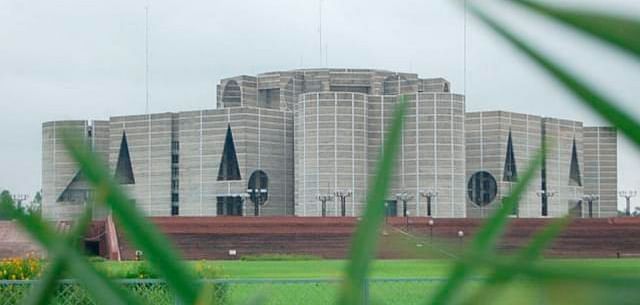
After the 66-day general holiday declared due to the coronavirus outbreak, the government reopened everything on 31 May, except educational institutions. While the transmission of the virus is still not wholly under control, everything is more or less back to normal — except for the parliamentary standing committee for the health ministry. This committee should be the most active of all, given the prevalence of coronavirus, but it has hardly held even a single meeting.
According to the rules of procedure of the Jatiya Sangsad (national parliament), the function of the ministry-based parliamentary committees is to review the activities of the concerned ministries, investigate irregularities and serious allegations and to scrutinise bills and any matter sent in from parliament.
From March till the present, the standing committee in health has held only one single meeting. From March, since the outbreak of coronavirus, there has been a storm of criticism and allegations against the health ministry regarding all sorts of corruption and irregularities. Questions have arisen about the committee’s utter silence despite these controversies. It has taken no initiative whatsoever to look into the ministry’s activities.
He said, perhaps they do not bother about such rules and regulations. Or they fear that investigations may let the cat out of the bag. Or, he added, perhaps the committee is dormant in order protect those who are at the root of all the corruption
Prior to the outbreak of coronavirus, there had been allegations of irregularities in procurement at Faridpur Medical College Hospital. The standing committee for the health ministry on 20 November last year formed a sub-committee to look into these allegations. The committee completed its investigations and prepared its report, but as the main committee has not held any meeting, the report has not been submitted to the authorities.
Convener of that inquiry committee parliamentarian Muhibur Rahman (Manik) told Prothom Alo that they had submitted the report long ago. When the main committee has its meeting, it will be discussed then and the committee will draw up its recommendations.
He went on to say that it was imperative for the parliamentary standing committee to hold a meeting at this time of coronavirus, but no meeting was held due to various reasons. He hoped a meeting will be called soon. He further said, even though no meeting has been held, the committee members are active in their respective positions.
On 8 March this year the first coronavirus case in the country was detected. Since then, there have been innumerable news reports of corruption and irregularities pertaining to the procurement of masks, personal protective equipment and medical supplies as well as in coronavirus testing.
The health ministry, in some cases, conducted investigations and took action. The Anti-Corruption Commission (ACC) had filed several cases regarding such allegations. But with no meeting being held, the standing committee on health has not discussed these issues at all.
After the holiday, in June no parliamentary standing committee held any meeting except for the standing committee for the law ministry. In July the parliamentary standing committees began to hold meetings again. Three sessions of the Jatiya Sangsad were also held during the coronavirus prevalence. But the standing committee for health did not hold any meeting.
According to the rules of procedure, the committee chair calls for the meeting. Senior parliamentarian of ruling Awami League, Sheikh Fazlul Karim Selim, is the head of the parliamentary standing committee for the health ministry. Attempts were made to contact him about why the committee hasn’t held a meeting in nine months, but his response has not been available.
Transparency International Bangladesh (TIB) regularly researches the Jatiya Sangsad and the activities of the parliamentary standing committees. TIB executive director Iftekharuzzaman, speaking to Prothom Alo, said the silence of the parliamentary committee on health is baffling. Corruption in the health sector is being widely discussed, yet this committee remains silent. They are not even holding regular meetings.
He said, perhaps they do not bother about such rules and regulations. Or they fear that investigations may let the cat out of the bag. Or, he added, perhaps the committee is dormant in order protect those who are at the root of all the corruption.
* This report appeared in the print and online edition of Prothom Alo and has been rewritten for the English edition by Ayesha Kabir









